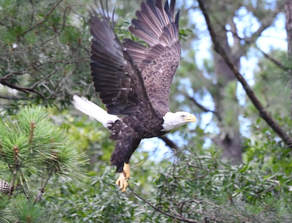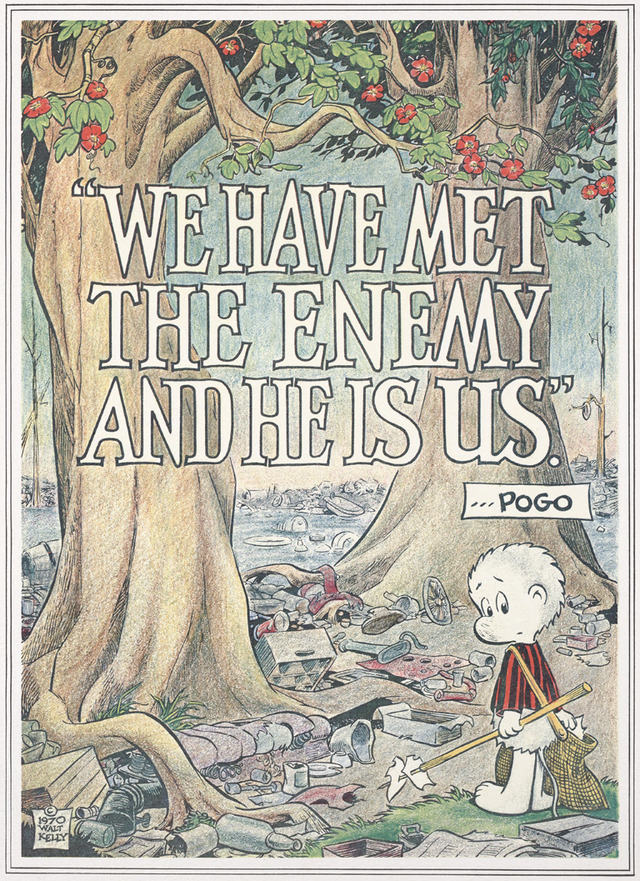By Curt MeineEditor's note: This essay is part of Curt Meine’s book, Correction Lines, published in 2013 by Island Press (Washington, DC). It appears here by permission of the author. This is the third and final section of Meine's essay. The land ethic will need to help reform the traditional economic worldview to include conservation concerns in a meaningful way.
Can the land ethic have deep and meaningful impact on the human economic enterprise? This is the 750-pound gorilla. For all the discussion of sustainability in recent decades, conservation has had a hard time gaining a full hearing within the dominant schools of neoclassical economics. Especially with rapid globalization and technological change driving economic development, conservation receives scant attention in the salons of high finance and international trade. Is there room, in the long run, for true reconciliation of economic and ecological worldviews? Is there any safe way out of our current addiction to the quarterly earnings report to a sincere commitment to the seventh generation? . . . . . . . . .
0 Comments
Walt Kelly's satirical cartoon from the 1970s has a certain appeal at this time. We share below the image of a 1980 reprint of Kelly's 1970 poster, “We Have Met the Enemy…” From the Toni Mendez Collection, at The Ohio State University, Billy Ireland Cartoon Library & Museum.
 Photo by Tom Earnhardt Photo by Tom Earnhardt --by Chuck Roe Private land trusts are on the front lines in defending and advocating for the protection of the most extraordinary natural areas and ecological treasures in the southern U.S. Beyond landowners, no one is more important than private land trusts and conservancies in safeguarding our natural heritage. I compose this essay in reaction to reading the recently adopted Land Trust Alliance (LTA) Strategic Plan for 2018-22. That plan and its proposed action steps are meritorious, ambitious, and logical in progressive evolution from the national association’s previous strategic plan. But I see a glaring omission in the LTA Plan’s introductory statement of purpose for the land trusts of America . . . >Read more HERE. Aldo Leopold, father of modern land and wildlife conservation, just before his death in 1948 famously articulated in A Sand County Almanac a new ethic of the land, one that would embrace “an intelligent humility toward man’s place in nature” and a definition of community that expands to include its natural capital, the water and soils, plants and animals, the very land itself.
“Do we not already sing our love for and obligation to the land of the free and the home of the brave?” he asked. “Yes, but just what and whom do we love? Certainly not the soil, which we are sending helter-skelter down river. Certainly not the waters, which we assume have no function except to turn turbines, float barges, and carry off sewage. Certainly not the plants, of which we exterminate whole communities without batting an eye. Certainly not the animals, of which we have already extirpated many of the largest and most beautiful species. A land ethic of course cannot prevent the alteration, management, and us of these ‘resources,’ but it does affirm their right to continued existence, and, at least in spots, their continued existence in a natural state. In short, a land ethic changes the role of Homo sapiens from conqueror of the land-community to plain member and citizen of it. It implies respect for his fellow-members, and also respect for the community as such.” Leopold’s message continues to be just as relevant to us now as it was nearly seventy years ago when he wrote this appeal in his landmark collection of essays. - credit to the Aldo Leopold Foundation and its Leopold Outlook journal (we encourage you to check out www.aldoleopold.org ) |
When we see land as a community to which we belong, we may begin to use it with love and respect.... Conservation, viewed in its entirety, is the slow and laborious unfolding of a new relationship between people and land." There is in fact no distinction between the fate of the land and the fate of the people. When one is abused, the other suffers. From the PresidentSCP President Chuck Roe looked at land conservation along the route of John Muir's "Southern Trek." About ViewpointThis blog offers views of our Board and partners. We invite your viewpoint on the following questions: Archives
April 2024
Categories
All
|



 RSS Feed
RSS Feed